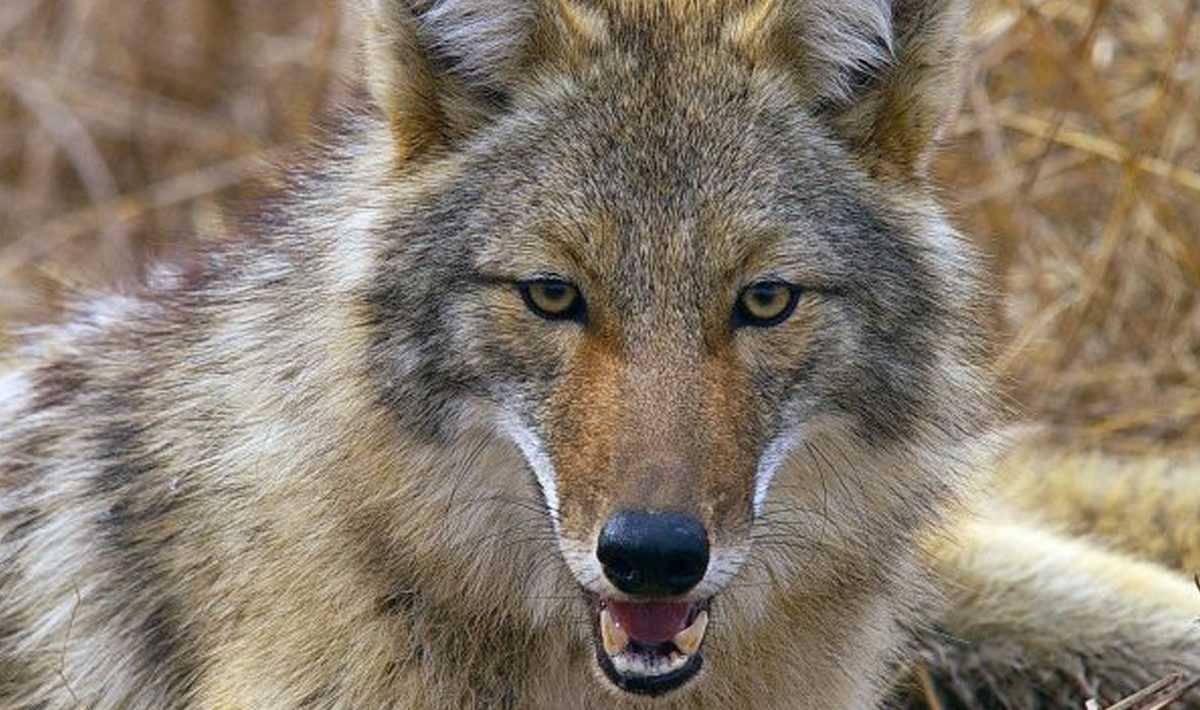It’s nearing the time of year when coyotes den up and give birth to pups, in the regional parks and other open space. And since there have been a lot of coyote sightings lately, this seems a good time to offer some information about them.
Coyotes are common throughout the western United States and beyond. They can be found in almost every East Bay regional park, from the inland hills to the bay shoreline. Adaptable and intelligent, they also prowl nearby suburban neighborhoods, including mine.
If you don’t see a coyote, you will often see its distinctive scat, which has a lot of fur mixed in with it from the small rodents that make up its basic diet. Through their eating habits, coyotes help to control the population of animals such as rabbits, ground squirrels, skunks and raccoons. They aren’t picky eaters; they will also go for fish, birds, reptiles and even insects on occasion.
Coyotes resemble smaller, skinnier versions of German shepherd dogs. Generally tan in color, they have long snouts and bushy, black-tipped tails.
Although they look like dogs, coyotes are wild and may occasionally be aggressive, especially if protecting a den. If you are walking with your dog and see a coyote approaching, it’s best to call your pet back to you and put it on leash. If a coyote follows you, make loud noises to scare it away. I have heard of no instances of coyotes attacking people in the regional parks. For the benefit of both species, coyotes need to remain wary of humans. So coyotes should never be given handouts or fed unintentionally by leaving pet food or garbage where they can get to it. Especially if you live near open space, feed your pet indoors and use trash containers with lids that clamp shut.
It’s also advisable to keep pets such as cats, rabbits and small dogs indoors. If allowed to run free outside, they can become prey for coyotes. Large dogs should be brought indoors after dark and should not be allowed to run loose. Coyotes can and do mate with domestic dogs. Moreover if you let your large dog run free outside at night, it can pack up with similar pets and hunt wildlife in the parks, which is not a good outcome.
For more information about coyotes, check out the California State Fish and Game website, www.wildlife.ca.gov/keep-me-wild/ coyote. There’s even more at the Washington state site: wdfw.wa.gov/living/coyotes.html.
* * *
Like coyotes, all other animals leave evidence of their presence. You can learn how to identify them in a “Critter Clues” program from 2 to 3 p.m. on Saturday, Feb. 9 at Big Break Regional Shoreline in Oakley.
Big Break is at 69 Big Break Road off Oakley’s Main Street. For information, call 888-327-2757, ext. 3050.
* * *
A search for winter blooms is in the works from 10 a.m. to noon on Sunday, Feb. 10 at Black Diamond Mines Regional Preserve in Antioch.
Naturalist Eddie Willis will lead a steep, rocky hike to spectacular views and early season wildflowers, best for ages 8 and up.
Meet Eddie in the parking lot at the end of Somersville Road, 3½ miles south of Highway 4. For information, call 888-327-2757, ext. 2750.
* * *
At Tilden Nature Area near Berkeley, naturalist Anthony Fisher will lead a series of “Good Morning, Nature!” walks from 10 to 11:30 a.m. on Sundays, Feb. 10, 17 and 24. Topics include tracks, scats, trees, rats, newts, mud, creeks and frost.
Meet Anthony at the Environmental Education Center, which is at the north end of Tilden’s Central Park Drive. Call 510-544-2233.
* * *
Do you love the bay beach? If so, you can help to clean it up during a pre-Valentine program from 10:30 a.m. to noon on Saturday, Feb. 9 at Crab Cove Visitor Center in Alameda.
Bring your own gloves and bucket or borrow either from the visitor center to help pick up left-behind litter.
The center is at 1252 McKay Ave. off Alameda’s Central Avenue. Call 510-544-3187.
* * *
The secret language of animal tracks will be revealed in a program from 10 to 11:30 a.m. on Saturday, Feb. 9 at Coyote Hills Regional Park in Fremont, led by naturalist Kristina Parkison.
It’s for ages seven and older. Meet at the visitor center for fun activities designed to help figure out which animals have left their marks on the trails.
Coyote Hills is at the end of Patterson Ranch Road off Paseo Padre Parkway. Call 510-544-3220.
* * *
This isn’t even half of what’s going on in the regional parks in coming days. For more information, check out the website, www.ebparks.org.





